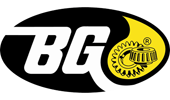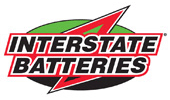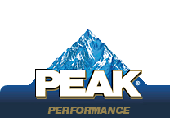AUTONET TV
Archive for July 2025Thoughtful Gifts for the Winter DriverPosted July 27, 2025 3:57 AMYou may be one of those romantics who don't like giving (or getting) practical gifts for special occasions. Just wait until one of those gifts helps you out of a big predicament in cold weather, and you realize that practical gifts can be life savers. Here are a few things you may give the cold-weather driver in your life—or suggest to someone else to give you!
McLearen Shell Steer Me Right! (Failing Power Steering Hose)Posted July 20, 2025 4:15 AMMost drivers love how easy it is to turn their vehicles, and they have power steering to thank. Engineers have figured out a way to take some of your engine's power to help you turn. Without it, steering can be quite a chore. New power systems are electric, but there are still plenty of the older hydraulic power steering systems out there, and it's wise to keep them working the way they should so you don't find yourself stranded without power steering. Those hydraulic power systems use a fluid under pressure that is pumped to a device that helps you turn your wheels more easily. It's that pressure that presents the challenge. After your vehicle's seen a few years on the road, you may find your steering isn't quite as easy as it was. You may hear a groaning or humming sound when you turn. One component that can fail is the pressure hose that carries that fluid from the power steering pump to that turning assist mechanism. The hose is made of rubber and can leak, crack, get damaged by heat and debris or just get too old. If yours is ten years old or older, it's likely getting close to the end of its life. If you think you can just wait until it fails completely, think of these possible consequences. If the hose or a coupling fails, power steering fluid can blow all over the hot engine. That fluid is flammable and can start a fire. Or if you've been driving for a few weeks with low power steering fluid, that could ruin your power steering pump. Replacing the pump is an extra expense you can probably live without. A technician will replace the necessary parts and make sure air and contaminants are bled or flushed from the system. Then, he or she will check for leaks. Just think how important a properly working power steering system is for safe operation of your vehicle. Make sure you keep yours in top shape for your safety's sake and the safety of others on the road around you. McLearen Shell Giving CV Joints the Boot! (CV Joint and Boot Replacement)Posted July 13, 2025 4:24 AMEver wonder how your vehicle’s transmission is connected to your wheels? After all, when you hit a pothole or some other uneven part of a road’s surface, there has to be something that can maintain the connection between the transmission and the wheel yet keep everything moving at the same speed. That very cool device is called a CV joint, a kind of driveshaft running to each wheel. The CV stands for constant velocity because it keeps the drive wheels moving at a constant speed (velocity). They’re used mostly on front-wheel drive vehicles but also in rear-wheel and all-wheel drive vehicles. The joints move up and down and adjust to bumpy surfaces. Plus, they are covered in a rubber boot which protects them from road debris and also holds lubrication in. There’s a CV joint and boot on the transmission side and one on the wheel side. Unfortunately, the spot that usually fails first is that rubber protective cover (the boot). After a lot of wear, tear, bumps, road hazards, heat, and you name it, the rubber rips and the lubrication leaks out. At that point, it must be replaced. Here are signs to tell if your CV joint is bad.
Sometimes if a broken boot early is caught early, a technician can pack in new grease and replace just the boot. But if the lubrication has leaked out and the joint is already wearing badly, the CV and boot both have to be replaced. Give your vehicle the boot (as in a new boot) and CV joint, and you’ll be back on the road to your next destination. McLearen Shell Oil's Well That Ends Well (Oil Change Grades and Weight)Posted July 6, 2025 3:52 AMChanging your oil regularly is one of the most important things you can do to keep your vehicle running well. And knowing the right type of oil to use is also very important. Engine oil is classified by weight, but it doesn't refer to how much the oil would weigh if you put it on a scale. It refers to viscosity, or how easily the oil flows through the engine. Most engines operate normally at around 210°F/99°C. The viscosity, or weight, is assigned a number by how well it flows at that temperature. The lower the number, the more freely it flows. Most vehicle engines use what's called a multigrade oil which behaves differently in different temperatures. Multigrade oils have a "W" in their viscosity number that you may have seen on a bottle of oil, something like 5W30. The W stands for winter and shows how freely it flows in colder temperatures. That means a 5W30 oil will behave like a 5 weight oil in lower temperatures (less viscous or thinner) and a 30 weight oil in warmer temperatures (more viscous or thicker). That's important on a cold day because the oil needs to behave like a thinner oil when you start your engine since it need to lubricate engine components immediately to protect the metal components. Then as the engine warms up, it behaves like a thicker oil to prevent friction among those parts. Pretty neat trick, right? The type of oil you use can differ depending on what type of climate you operate your vehicle in and how your vehicle is used (carrying big loads, towing, etc.). Your owner's manual contains several different recommendations based on these factors. Your service advisor can recommend the right oil for your needs. Like Shakespeare said, "Oil's well that ends well." McLearen Shell | ||
SearchArchiveMay 2016 (16)June 2016 (4) July 2016 (5) August 2016 (4) September 2016 (4) October 2016 (5) November 2016 (4) December 2016 (4) January 2017 (5) February 2017 (4) March 2017 (4) April 2017 (4) May 2017 (5) June 2017 (4) July 2017 (5) August 2017 (3) September 2017 (3) October 2017 (4) November 2017 (5) December 2017 (3) January 2018 (5) February 2018 (3) March 2018 (4) April 2018 (5) May 2018 (4) June 2018 (4) July 2018 (5) August 2018 (4) September 2018 (5) October 2018 (4) November 2018 (4) December 2018 (5) January 2019 (5) February 2019 (4) March 2019 (5) April 2019 (4) May 2019 (4) June 2019 (5) July 2019 (4) August 2019 (4) September 2019 (5) October 2019 (4) November 2019 (4) December 2019 (5) January 2020 (5) February 2020 (4) March 2020 (5) April 2020 (4) May 2020 (5) June 2020 (4) July 2020 (4) August 2020 (5) September 2020 (4) October 2020 (4) November 2020 (5) December 2020 (4) January 2021 (6) February 2021 (4) March 2021 (4) April 2021 (4) May 2021 (5) June 2021 (4) July 2021 (4) August 2021 (5) September 2021 (4) October 2021 (5) November 2021 (3) December 2021 (4) January 2022 (6) February 2022 (4) March 2022 (4) April 2022 (4) May 2022 (5) June 2022 (4) July 2022 (5) August 2022 (4) September 2022 (4) October 2022 (5) November 2022 (4) December 2022 (4) January 2023 (5) February 2023 (4) March 2023 (4) April 2023 (5) May 2023 (4) June 2023 (4) July 2023 (5) August 2023 (4) September 2023 (4) October 2023 (5) November 2023 (4) December 2023 (5) January 2024 (5) February 2024 (4) March 2024 (5) April 2024 (4) May 2024 (4) June 2024 (5) July 2024 (4) August 2024 (4) September 2024 (5) October 2024 (4) November 2024 (4) December 2024 (5) January 2025 (4) February 2025 (4) March 2025 (5) April 2025 (4) May 2025 (4) June 2025 (5) July 2025 (4) August 2025 (5) September 2025 (4) October 2025 (4) November 2025 (5) December 2025 (4) January 2026 (4) February 2026 (4) | CategoriesFuel Economy (7)Alternator (5)Service Standards (3)Headlamps (4)Maintenance (9)Transmission (5)Battery Replacement (1)Timing Belt (4)Fluids (6)Battery (11)Alignment (8)Steering (8)Keys to a long lasting vehicle (2)What Customers Should Know (70)Auto Safety (5)Air Conditioning (9)Brakes (12)Exhaust (8)Fuel System (6)Customer Detective Work (1)Fuel Saving Tip: Slow Down (2)Cooling System (8)Safety (2)Safe Driving (1)Drive Train (4)Tires and Wheels (4)Dashboard (1)Tire Rotation and Balancing (3)Oil Change (7)Service Intervals (1)Suspension (2)Shocks & Struts (4)Check Engine Light (3)Fuel Pump (1)Tires (7)Trip Inspection (1)Automotive News (1)Brake Service (4)Spark Plugs (2)Winter Prep (2)Windshield Wipers (2)TPMS (1)Inspection (2)Shocks and Struts (2)Fuel Filter (1)Water Pump (1)Differential Service (2)Wheel Bearings (1)PCV Valve (2)Engine Air Filter (2) | |
Reviews
|
Excellent work. Josh always does all the maintenance for my Porsche, VW Taureg, and Subi Outback. I can always count on him doing what is needed and never trying to upcharge me for work that is not needed. Jack, 11/30/2021 |
Took our Acura RDX in for brake service today. The staff at McLearen Shell did an excellent job, replacing the front discs & rotors. They advised that the rear pads still had 50% material remaining. Have had a variety of automobiles serviced at this service station over the last 25 years and there service remains outstanding and very reasonably priced. Highly recommended. Rob Saunders, 04/21/2022 |
Great team at McLearen Shell, have regularly changed out brakes, bulbs, oil, valve cover gasket, spark plugs, etc. on a 1998 Gen 4 Camry LE for the past three years. Trustworthy, professional and they know these older still-running vehicles. Always respectful to Ladies interested in vehicle mechanical function and maintenance as well Margaret, 06/16/2021 |













